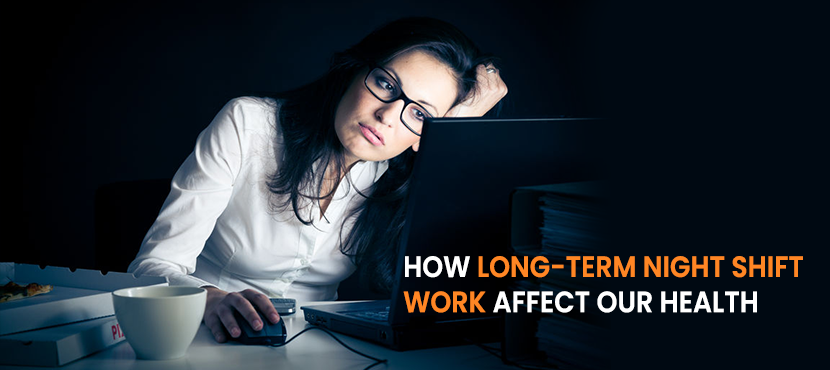How Long-Term Night Shift Work Affect Our health
Police officers, firefighters, nurses, doctors, pilots, waitresses, truck drivers, and similar professionals are pressurized to work in crisis and emergency conditions. Working the night shift is one such stressful point.
It is a proven fact that night shift works hamper your internal body clock, thus disrupting the circadian rhythm. Sleep loss and sleep disturbance are the results of the same. The human circadian rhythm is the chief health influencer. Affecting it can trigger numerous body functions, leading to serious life concerns. To name a few short term health risks:
- Gastrointestinal symptoms such as stomach upset, nausea, heartburn, etc.
- Insomnia.
- A general feeling of being unwell.
Research-Based Health Perspectives of Working at Night
Here are some clinically-derived information on the long term health risks of working at night;
- A research review touted that shift-working increases the risk of cardiovascular disease by 40.
- Prolonged duration of night shifts cause metabolic syndrome – merged health problems, including high BP and sugar (diabetes), obesity, and unhealthy cholesterol levels.
- A 2008-study correlates shift-working and chronic heartburn or GERD.
- Complications during pregnancy, premature or low-weight babies, fertility issues, endometriosis, and irregular periods are all linked to night shift working.
- One of the World Health Organization’s (WHO) 2007-subcommittee deemed shift working is “probably carcinogenic.” Hence, increasing the breast cancer risks by 50% and prostate & colorectal cancers, if sustained 10+ years.
- Depression and mood disorders also follow the line of night shift health hazards.
The worst part here is you might not even be aware that you are affected with some health condition until the symptoms and side effects of working night shift turn visible!
The 5 Key Night Shift Health Tips for Professionals
- Consult a nutritionist in Bangalore (or any region) and understand the pattern of diet for night shift workers. However, it is advisable to restrict consumption between midnight and 6 AM, rather than eating at the end or beginning of your shift. Stop over-consuming caffeine during the night shifts as it affects your sleep cycle in the day time.
- Sleep for 5 to 6 hours continuously for facilitating a healthy day-sleep schedule.
- Restrain from night shifts if you are above 40 years.
- Shift to regular (day) work, if you have been working on night shift for 10+ years.
- Stop practicing night shift work for more than 6 months.
It might be challenging to answer on how to work night shift and stay healthy because this context is against and beyond our physiological evolution. Yet, the takeaway is that night shift works are unhealthy!





No Comments